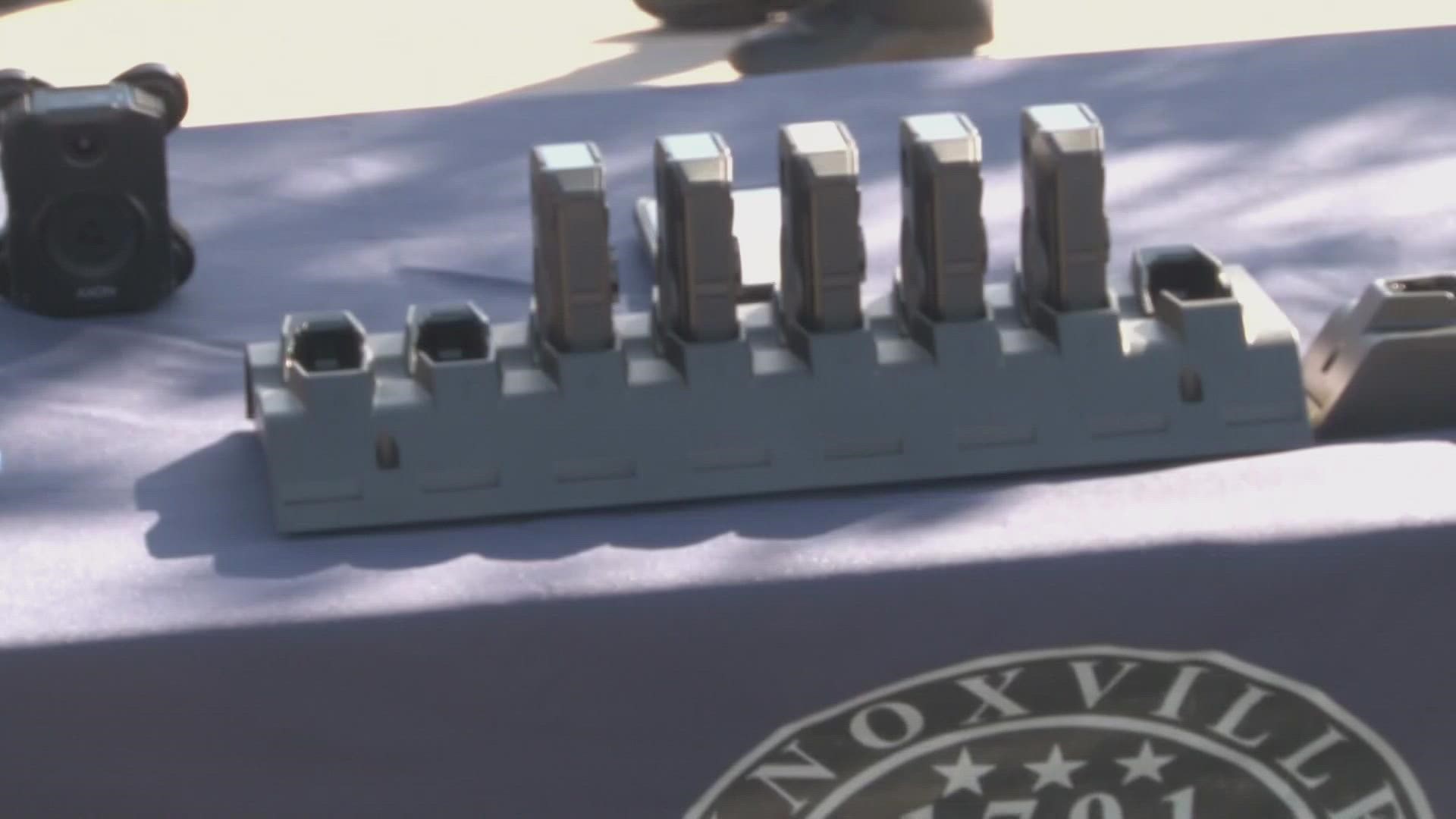KNOXVILLE, Tenn. — The Knoxville Police Department said it will update its existing body-worn camera policy "fairly soon."
The department issued nearly 300 body cameras in April 2021 to increase transparency and accountability, then-Chief Eve Thomas said. However, the cameras haven't captured every case as well as they were intended to.
Just a week and a half after the cameras were deployed, four officers wore them as they attempted to arrest Anthony Thompson Jr. at Austin-East Magnet High School.
Only one of the four cameras captured the deadly shooting that occurred in the bathroom. Two of them fell off and a third didn't start recording until after the gunfire. KPD reprimanded that officer for not turning on their body camera that day.
In October 2021, officers with KPD's special operations squad weren't wearing body cameras during a deadly shooting because the policy at the time didn't explicitly require them to. It has since been changed.
"Generally speaking, malfunctions tend to happen right before very key information could be gleaned from what happened," said Jered Croom, who is a member Police Advisory and Review Council (PARC).
In another instance reviewed by PARC, two minutes of the video appeared to be missing because of the way the officer stood.
"He had his arms crossed. That was kind of blocking the camera," Chief Noel said. "There's just really no standard place to place the body-worn camera."
That's something he hopes to change with policy revisions. KPD has been studying the most effective location for officers to wear body cameras.
"They put the camera on nine different locations on the shirt and they actually simulated different encounters, shootings, struggling with people in those nine different locations," he said. "Placing it on that support side, below the pocket ... really gives you an optimal view, even if some of that stuff is going on."
He said they'll add a diagram to the existing KPD policy so officers know where to wear the cameras. Chief Noel also wants to review the policy allowing officers to mute their microphones at their discretion.
"I think that's problematic just to have the officer making that decision on their own. And also, I'm concerned about unmuting the camera once that period is done," Noel said. "I absolutely plan on changing this. What that's going to look like yet, I don't know."

